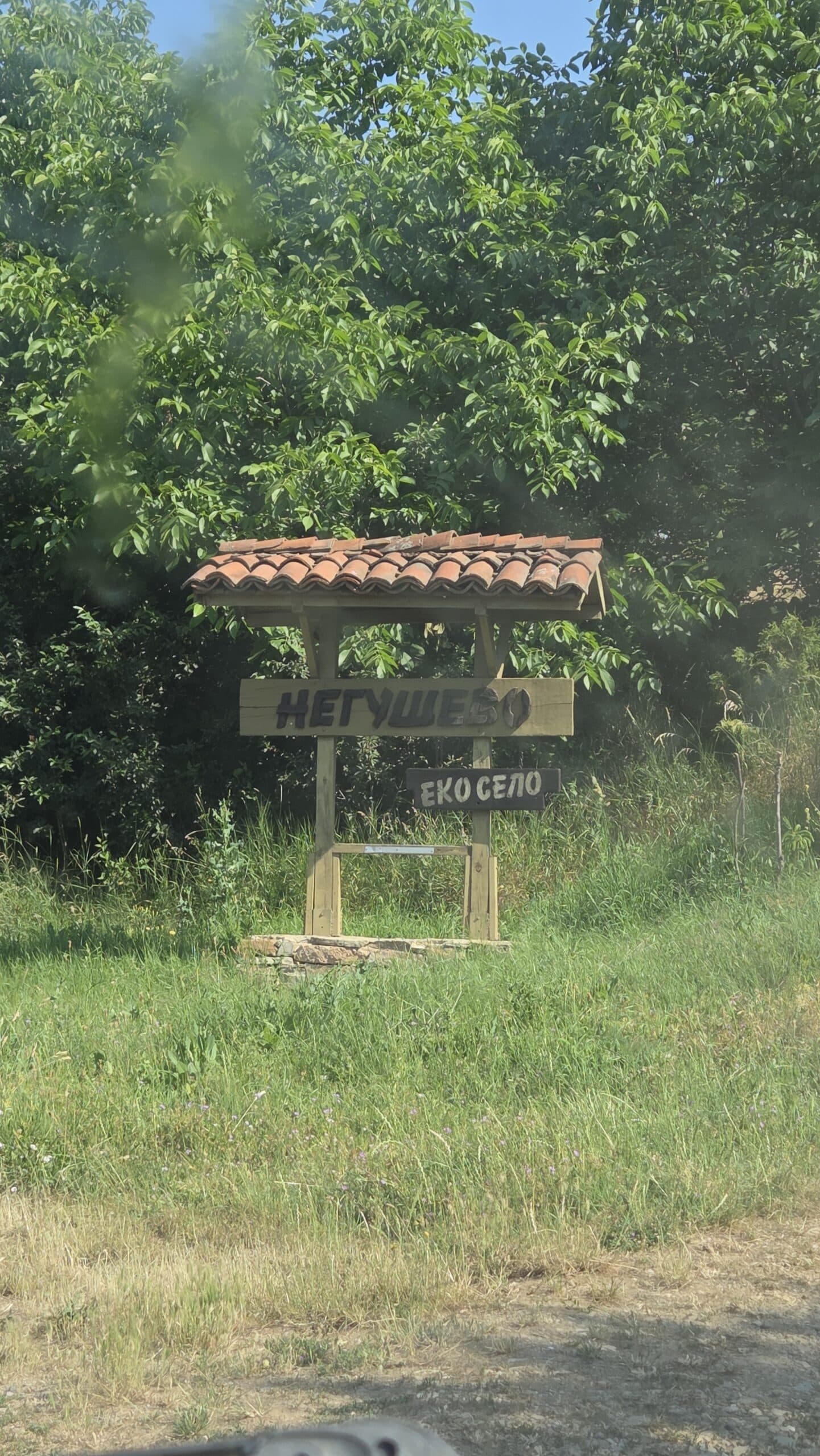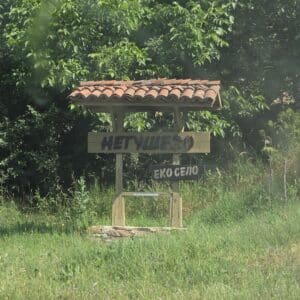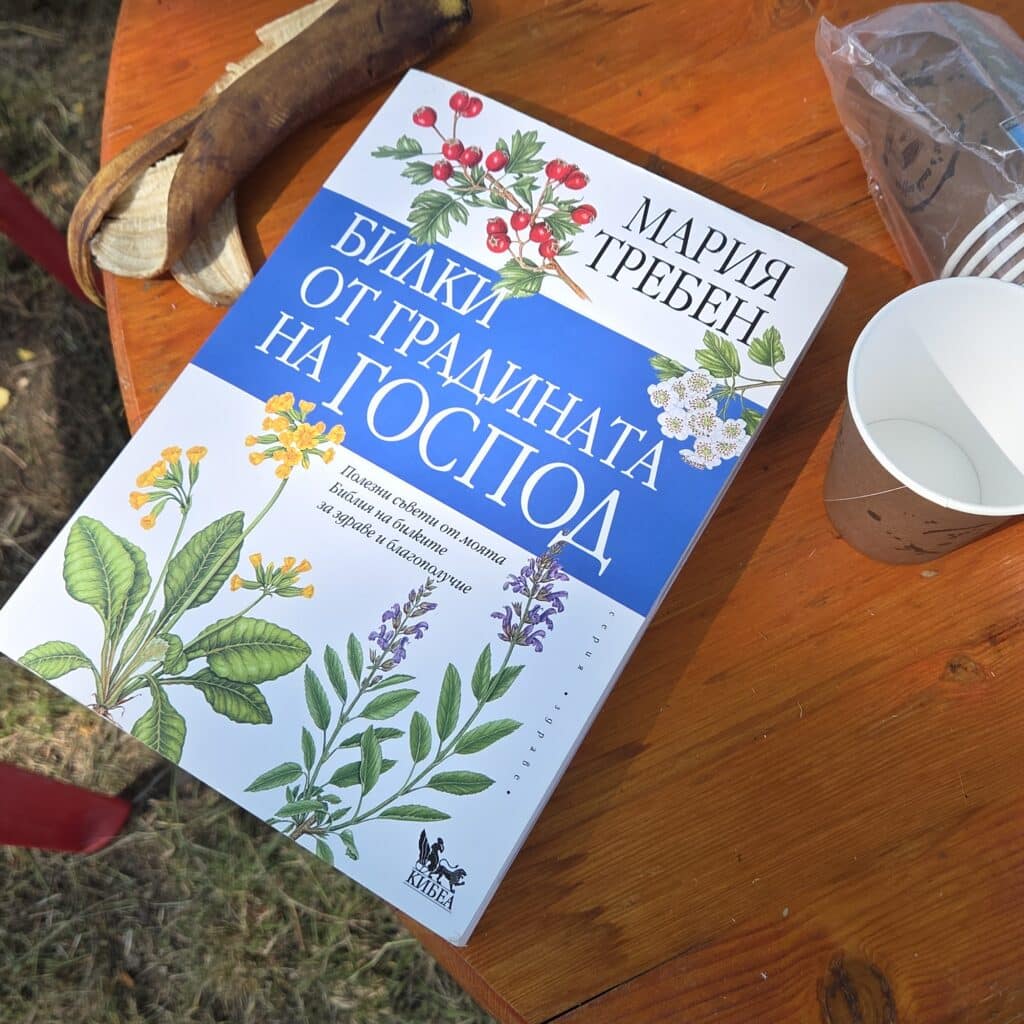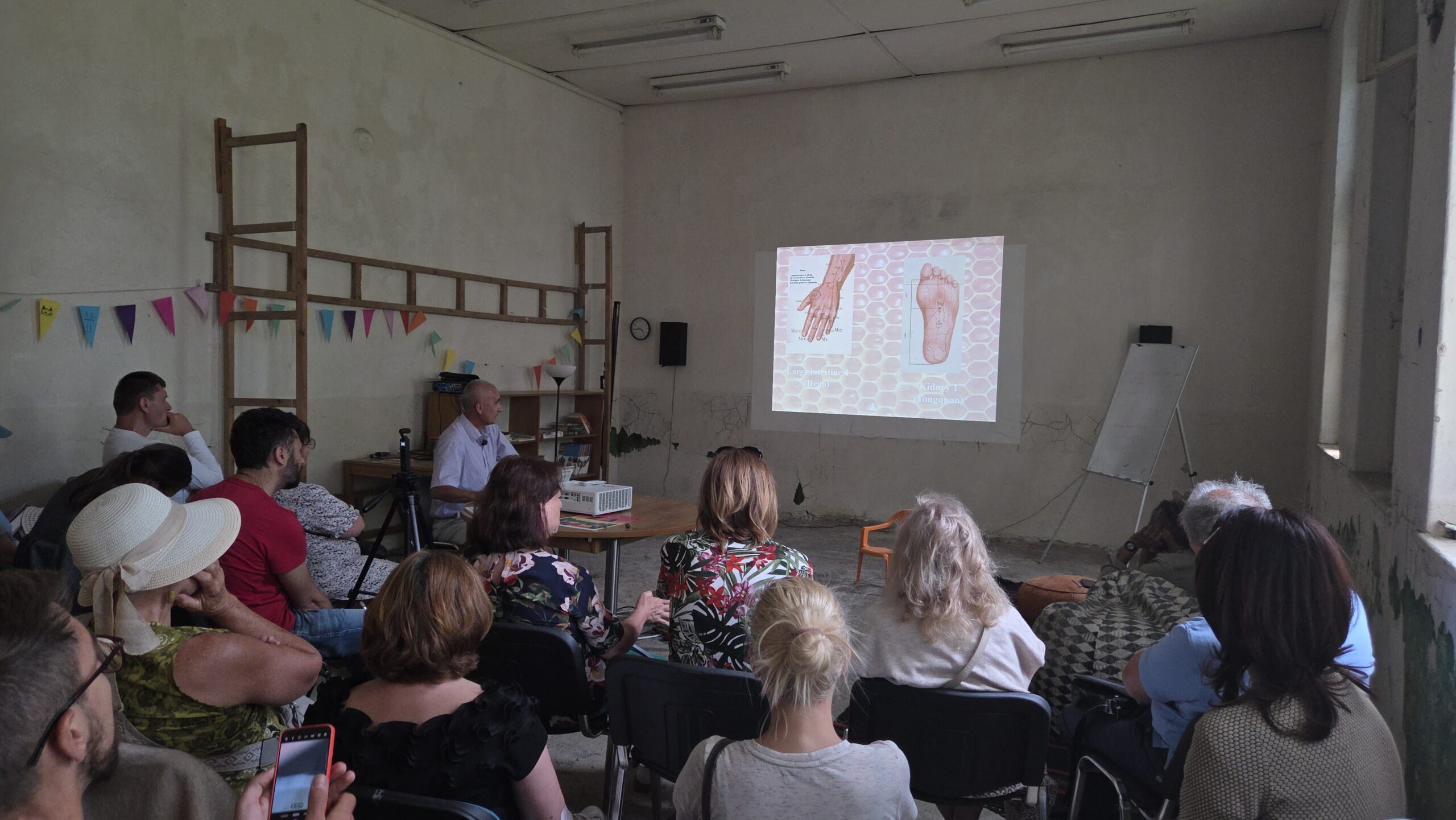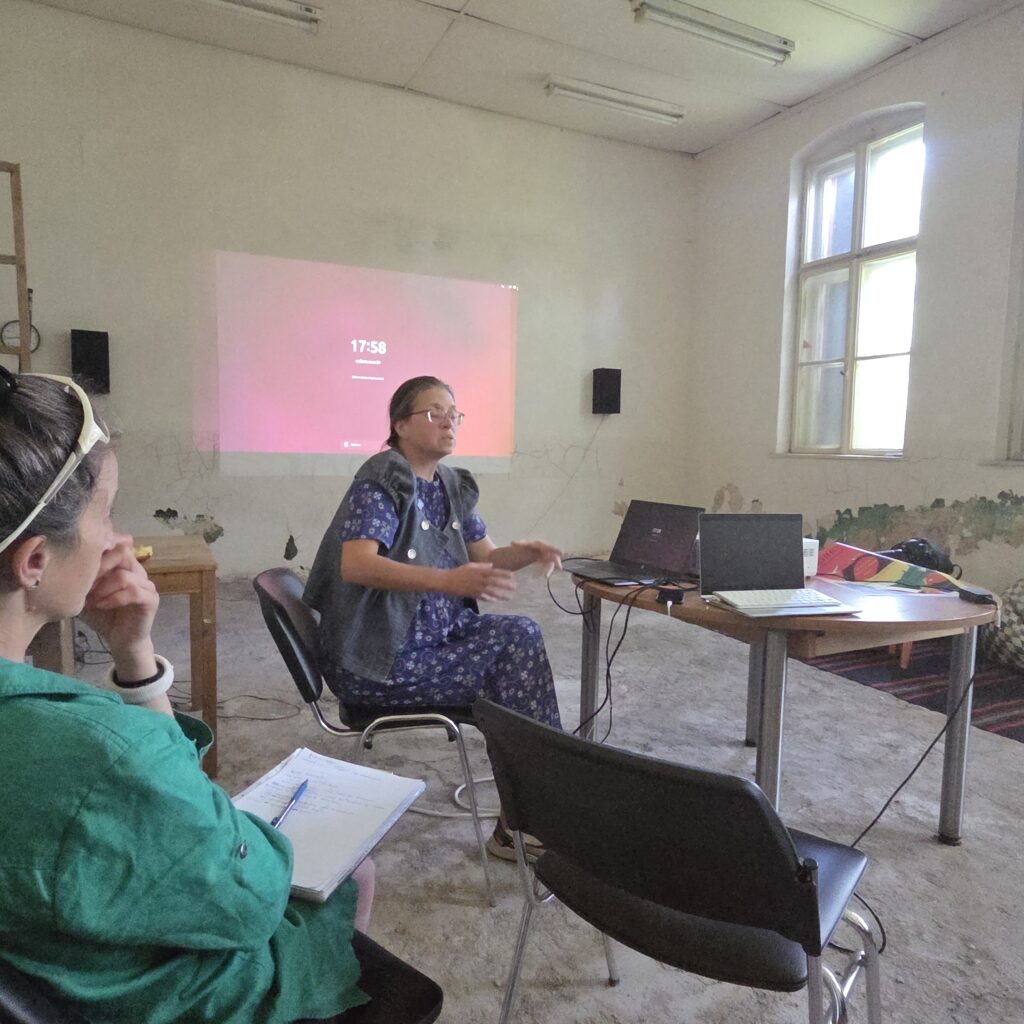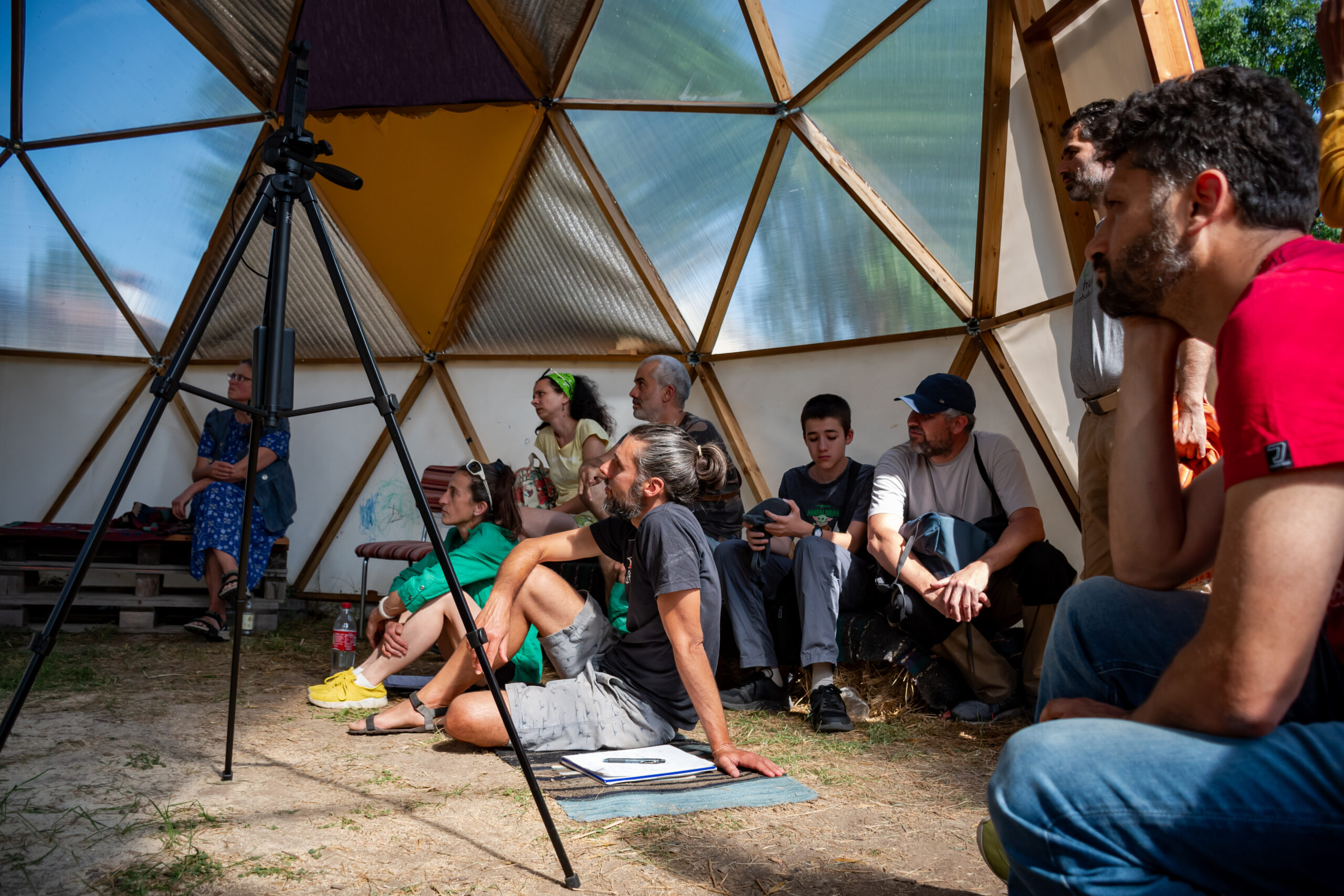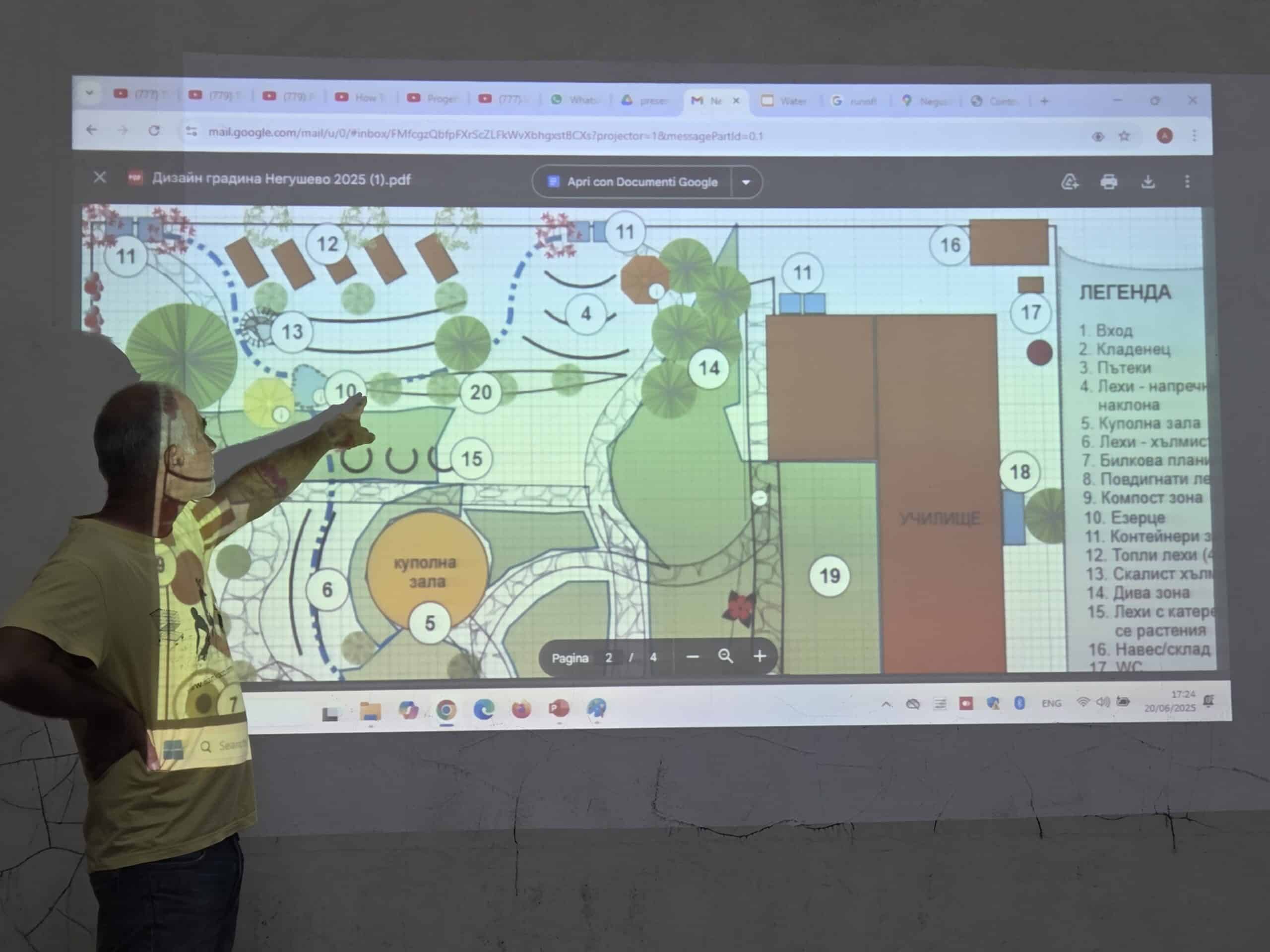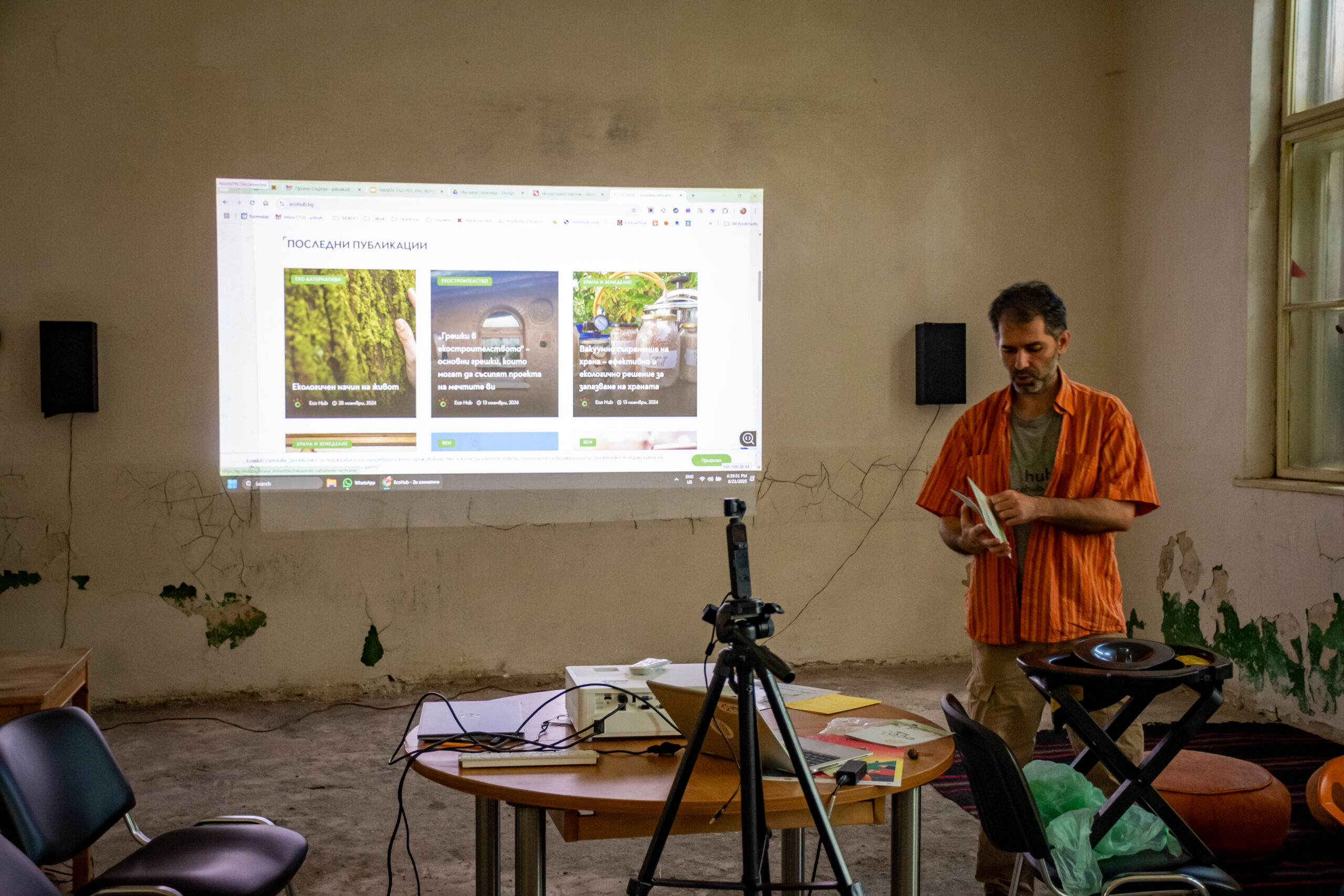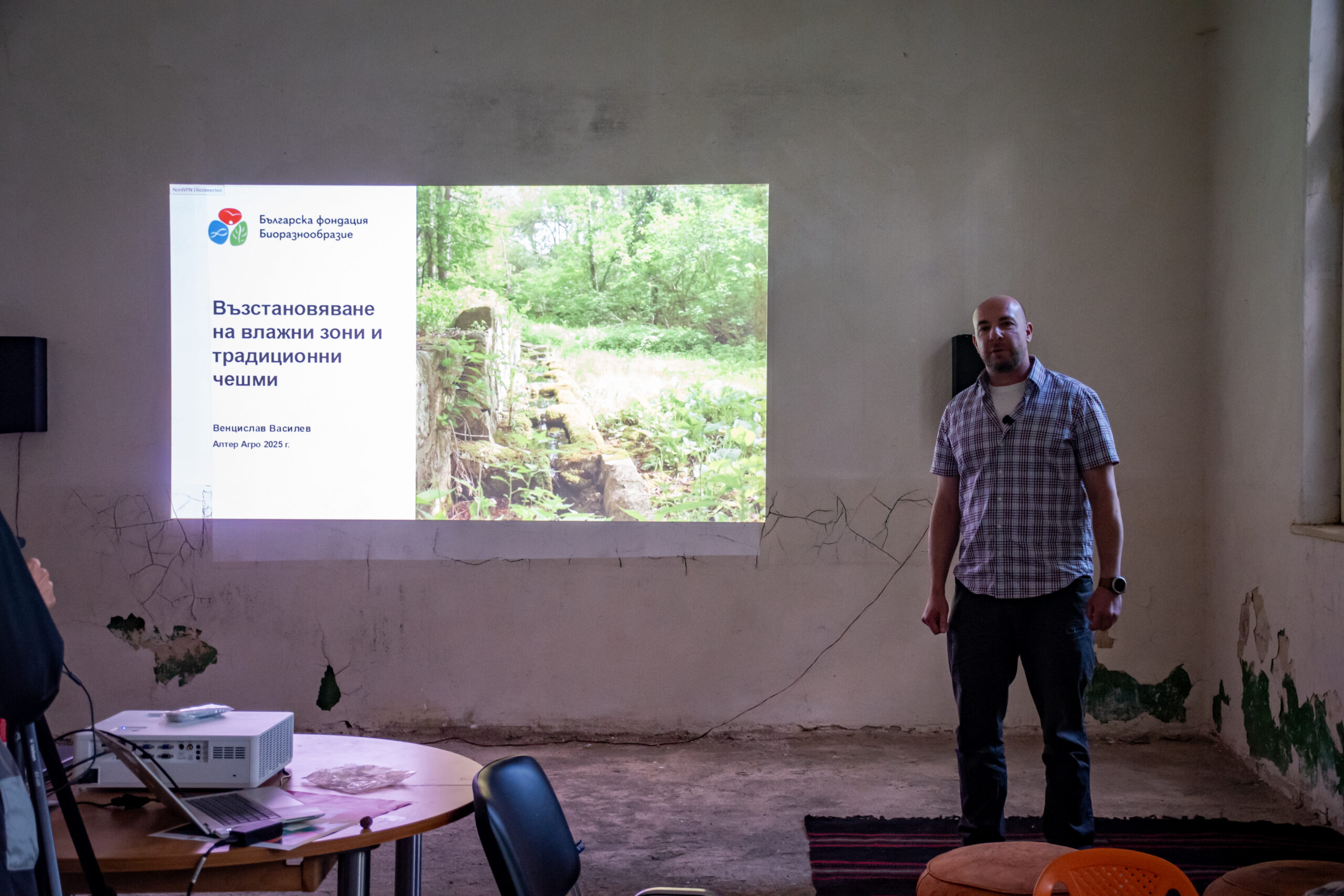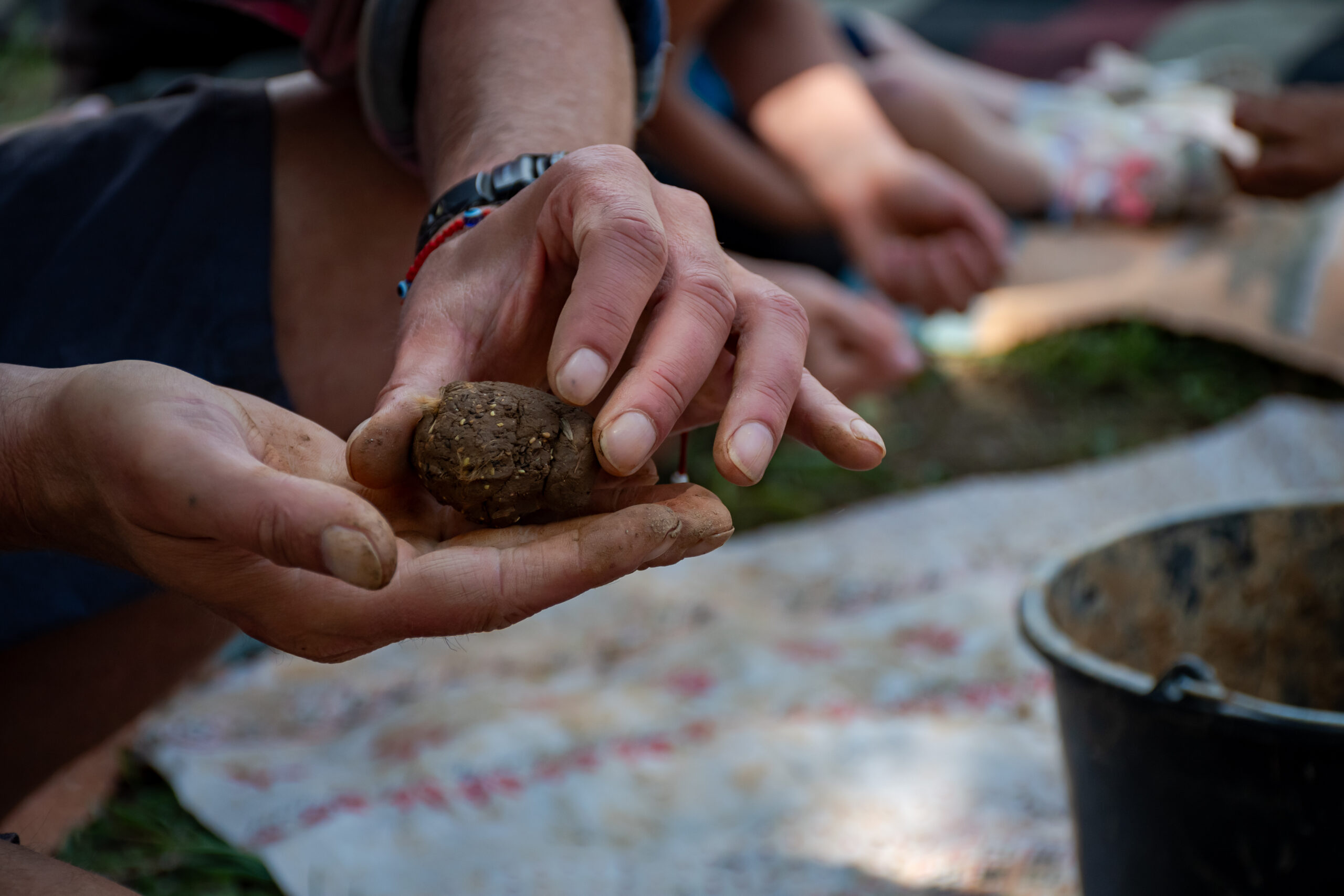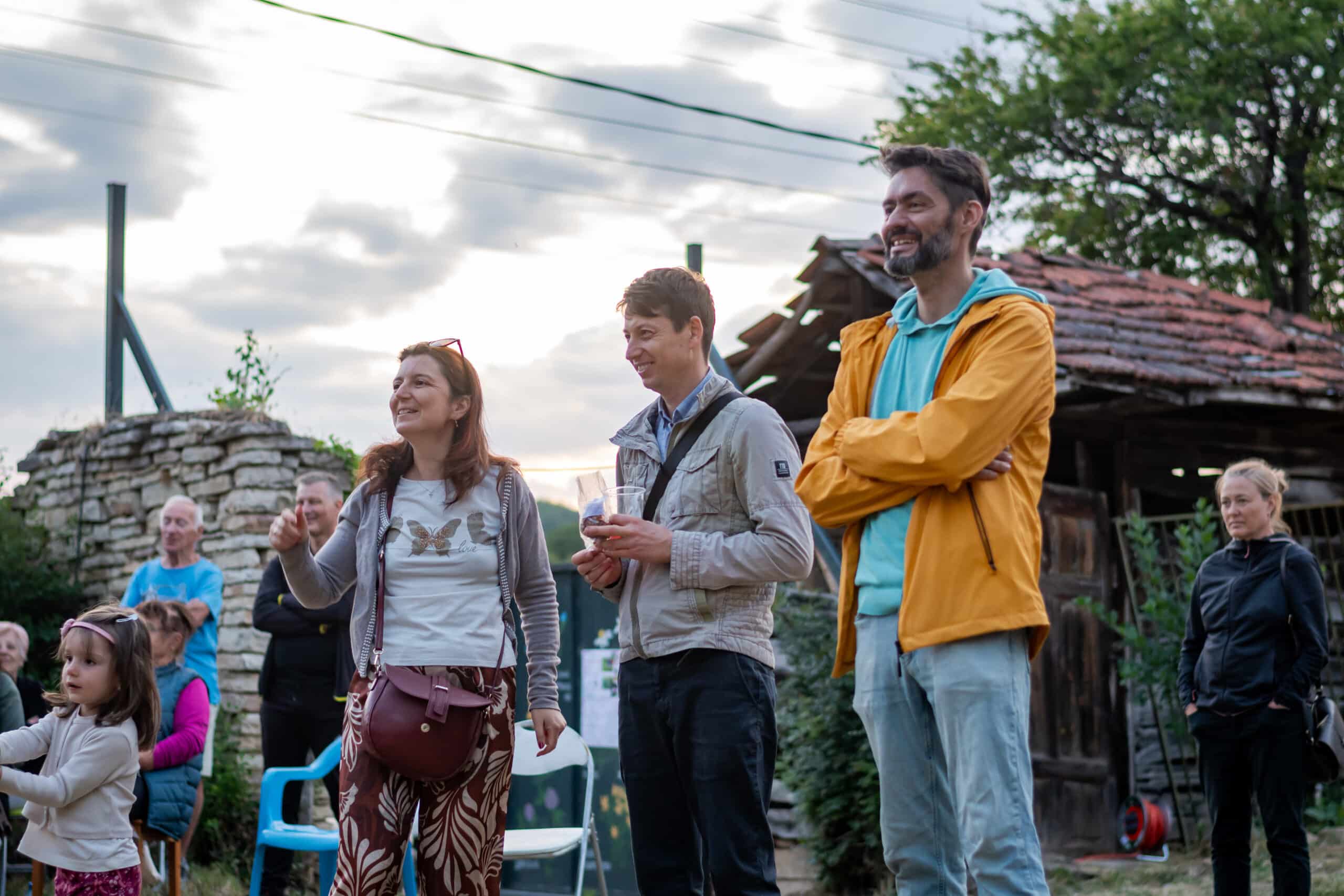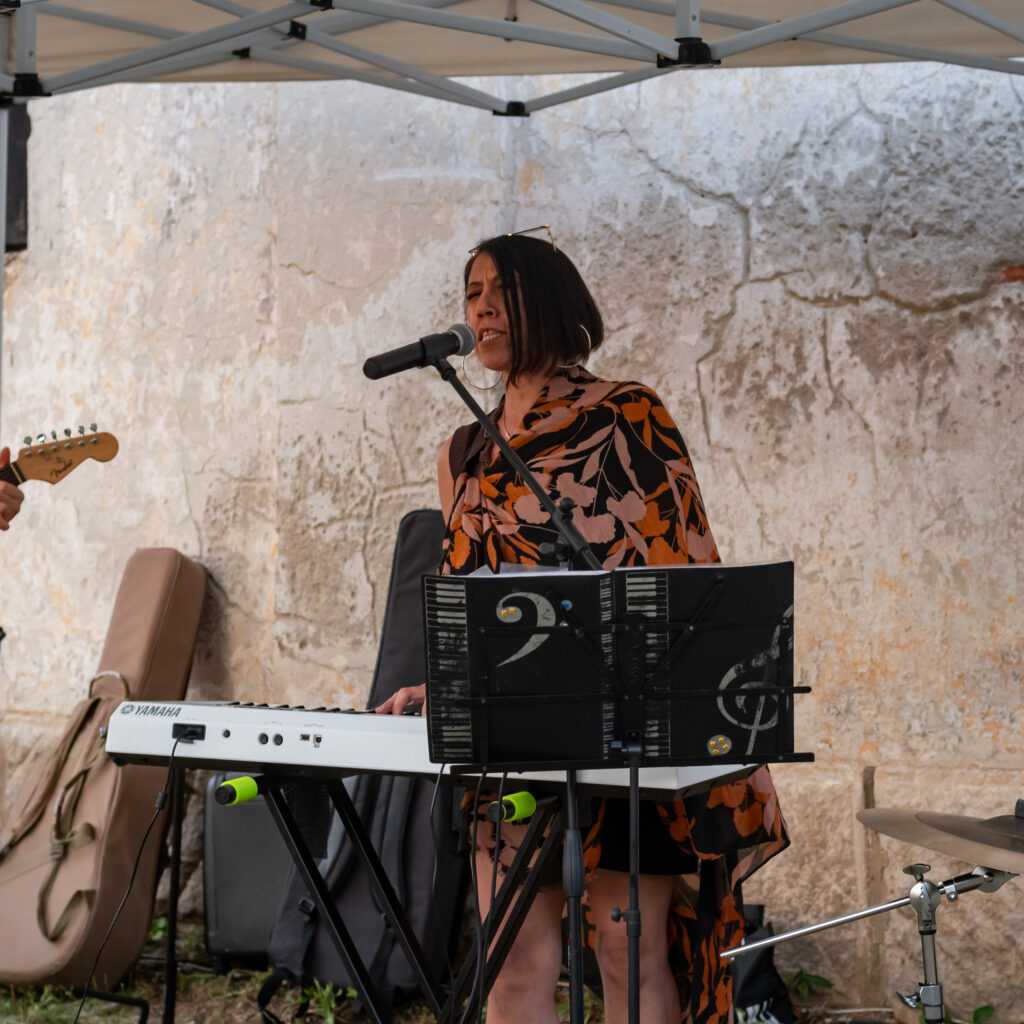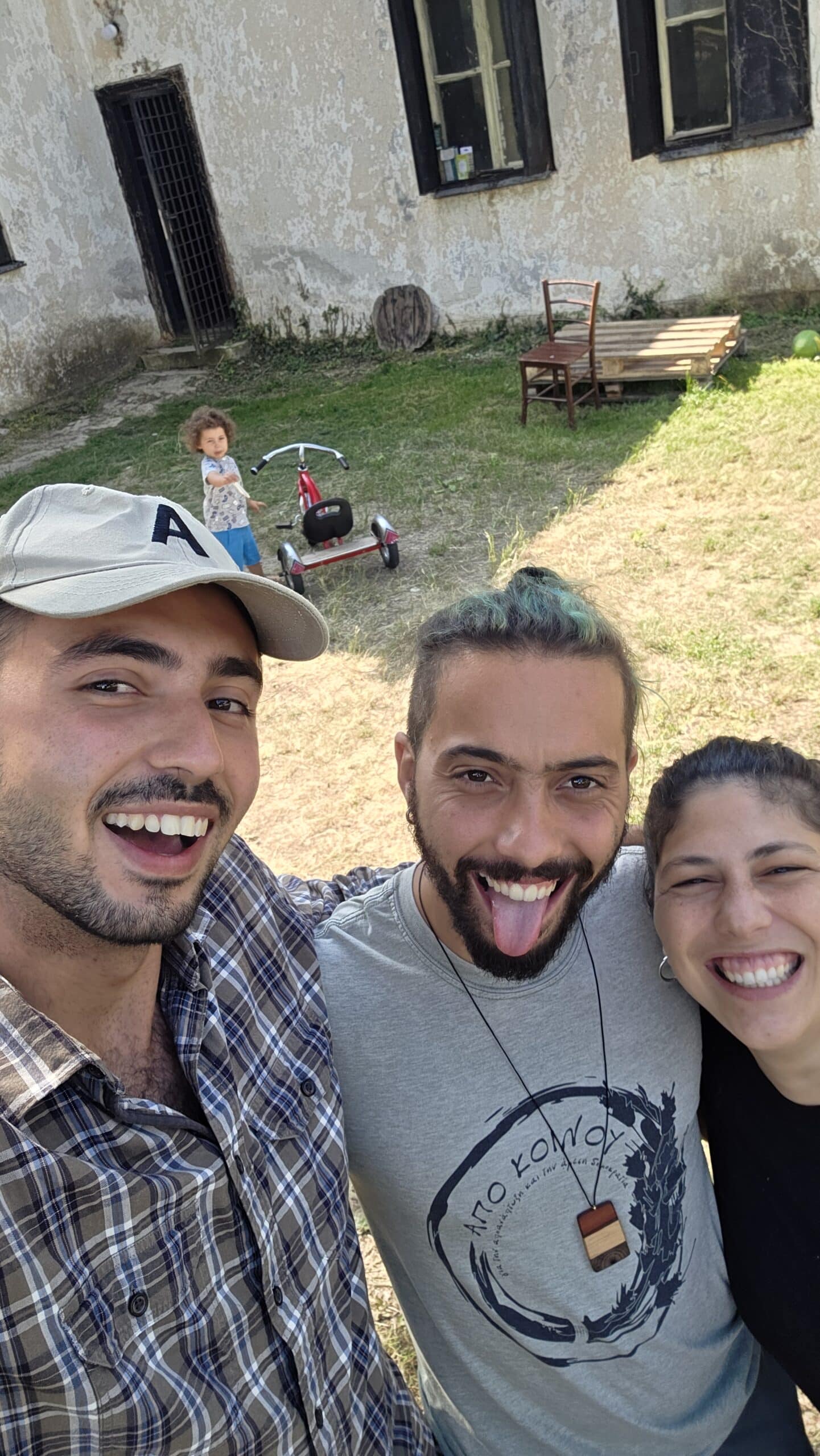Alter Agro Festival 2025: Water, Clay Seeds, and Community — My Personal Experience the Weekend I Reconnected
I arrived on Thursday for a two-day dive into water in permaculture and garden design, and the whole weekend surprised me with how much of the festival lives in the same space as the hands-on work I love. I was there not just to learn and help in solidarity, but to reconnect with a friend who’s become a touchstone in my growing interest in low-tech systems, community living, and sustainable design.
Reconnecting and a two-day program on water my Italian friend Anna led the Thursday–Friday sessions on water and water management in a garden or field. We first met last year in COB – Greece, where a GSV project explored low-tech structures, permaculture, and living communities. Seeing Anna again felt like stepping back into a familiar project pit-crew, the kind of reunion that reminds you why you chose this path in the first place. The sessions were practical and grounded: how to design for water retention and slow movement through a landscape, how to observe microclimates, and how simple, everyday practices can shift outcomes in real plots – including yours.
Anna’s approach made the material feel accessible rather than theoretical. The workshops mixed quick demonstrations with longer conversations about design decisions, the kinds of mistakes you learn from, and how community knowledge can be a powerful accelerant. I left those two days with concrete ideas for water management in a garden or field—rainwater harvesting ideas, simple contouring logic, and practical plant choices that work with local conditions. More than the techniques, I appreciated the mindset: to work with water, not against it, and to see every garden as a small watershed with a community around it.
A shift into Alter Agro festival’s weekend programming Saturday and Sunday broadened the lens beyond the hands-on water work to the broader Alter Agro festival program. The two days brought a mix of lectures and demos under the festival umbrella, with a focus on practical, regenerative systems and a celebration of local food culture. Highlights included:
-
- Aquaponics and permaculture design
- Making clay seed balls
- Live music and good food
- A vibrant circle of people sharing ideas and experiences
Here are some photos of the event and activities :
A lecture on apitherapy (the practice of using bees as therapy for people) (2 photos)
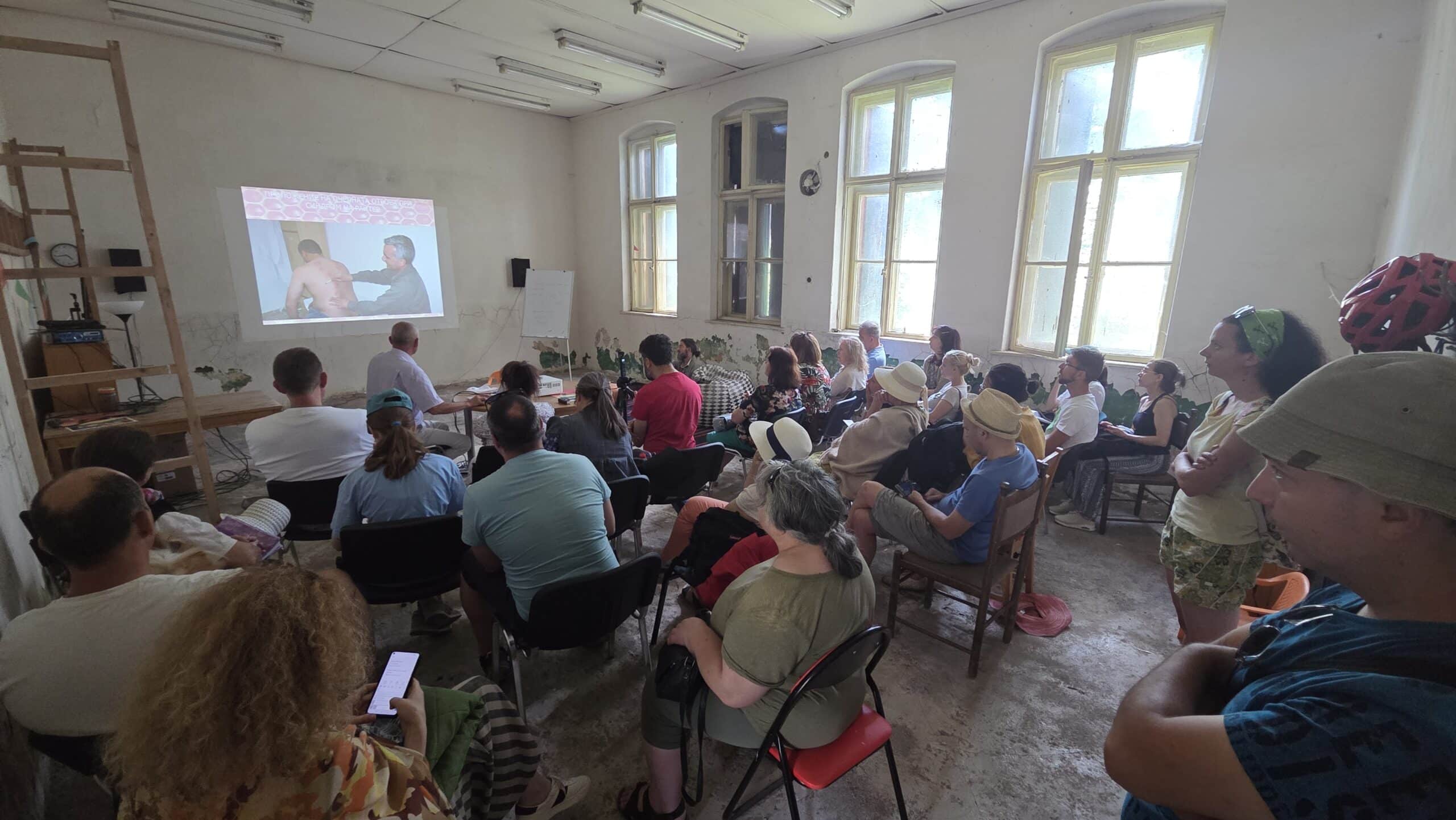
Our own Katya Nikolova had a lecture on holistic and sustainable practices in the garden
Some lectures were held in the outside Zone, made recently with help of Hran Koop, which is an organisation in Bulgaria involved in food cooperatives and farmers markets.
In the second image you see Niki from Hran Koop presenting the design of the school yard in Negushevo that will be transformed into a visitors and educational centre for sustainable gardening and permaculture very soon.
Check out Hran Koop here – https://www.hrankoop.com/
We had a lecture on compost toilets from Todor Slavov and their importance in a situation where a city looses electricity and/or water supply
Finally Bulgarian Biodiversity Fund had a presentation about wetland restoration and the importance of old water sources and springs
These sessions connected the thread from Thursday and Friday—how we design and care for space—to a lived, in-the-feld experience of community farming, exchange, and creative resilience. The aquaponics talks offered a glimpse into integrated systems, while the permaculture design conversations tied back to the bigger question of how to design adaptable spaces that support both people and ecosystems. Making clay seed balls brought a playful, tactile element to the weekend, a reminder that hands-on craft can carry serious ecological thinking into practice.
Meeting people and building community If there’s one throughline from this weekend, it’s the people. I met amazing folks from different backgrounds who share a curiosity about sustainable living, farming, and community care. The conversations spilled beyond the scheduled topics into everyday ideas—how to start a small project at home, how to connect with neighbors to share tools or seeds, and how to translate festival knowledge into manageable, ongoing practice.
I also had the chance to reconnect with Anna in a setting that felt both familiar and forward-looking. The energy of learning together, especially with someone who has been part of my journey since the COB-Greece project, energized me in a way only in-person gatherings can. It reminded me that growth in this field isn’t just about new ideas but about the relationships that sustain long-term experimentation and learning.
A place I’m ready to call home for volunteering and leading One of the most exciting discoveries of Alter Agro 2025 was a sense of place. I found Negushevo—a place I’d love to return to as often as I can to volunteer, help out, learn, and perhaps soon lead my own workshops and activities. The festival and the surrounding community feel like a perfect environment to test ideas, practice facilitation, and build ongoing connections with people who are committed to hands-on learning and mutual aid.
There was a seed ball making activity to help spread local seeds
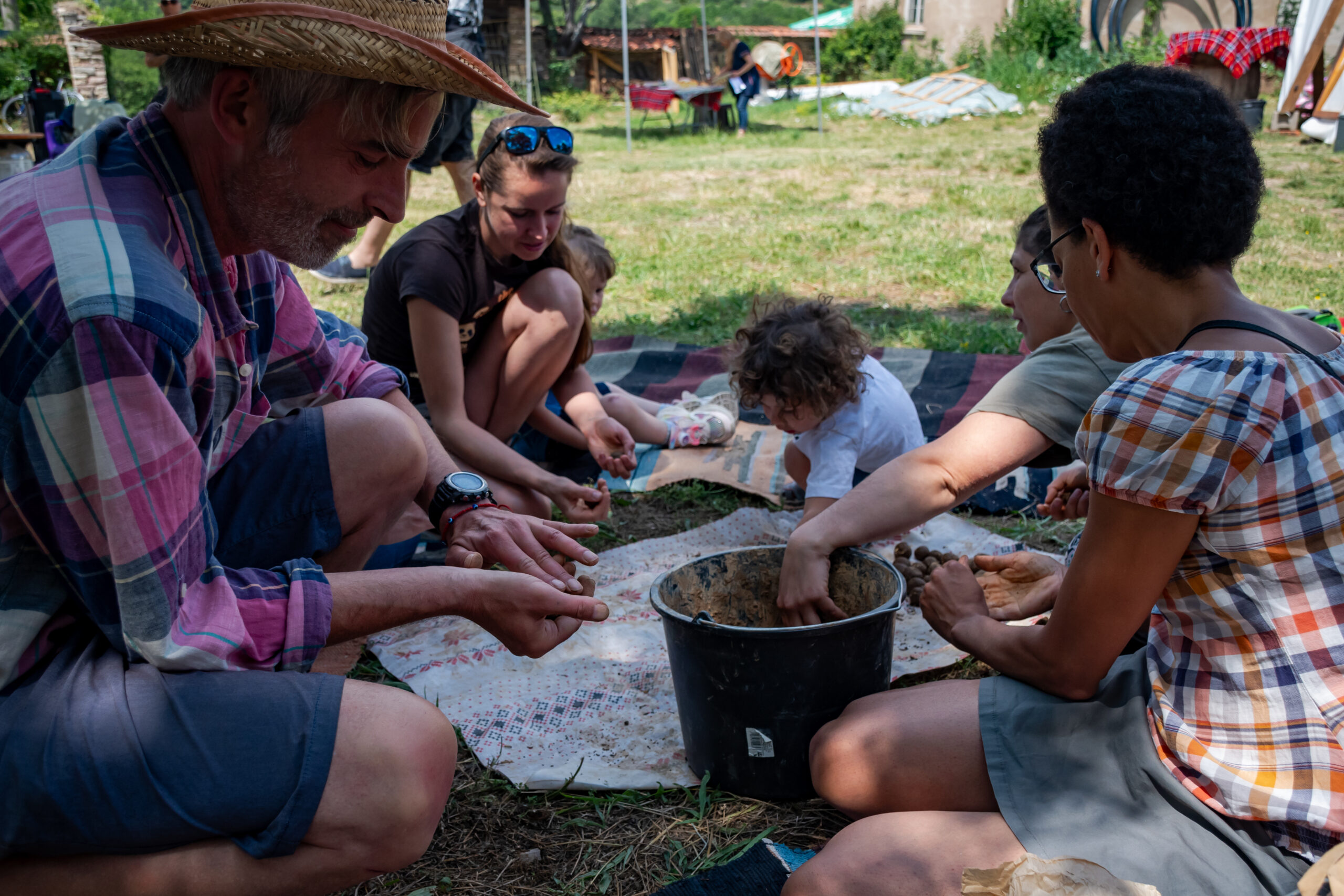
People enjoying the festivities and music, and some more of our members present
It was lovely when I arrived to meet my friends from COB Christos, Anna and their lovely son Filipo
Takeaways and next steps
- Grounded in practice: The water-focused sessions gave me actionable steps I can adapt to my own garden or small plots, with a reminder that water management is a design principle, not a one-off trick.
- Integrated systems matter: The aquaponics and permaculture design discussions reinforced the value of viewing garden spaces as integrated ecosystems where water, soil, plants, and people support one another.
- Craft as a learning tool: Clay seed balls sound small, but their craft-based approach helps translate theory into tangible, repeatable actions.
- Community is the catalyst: The people and conversations are as important as the content. The festival is a space to build networks that can sustain ongoing learning and collaboration.
- A place to grow: Negushevo feels like a genuine home for future work, volunteering, and leadership opportunities.
If you’re planning to go next year, bring a notebook, a reusable bottle, and a curiosity that’s excited to connect with others who are rebuilding how we grow and share food. For me, Alter Agro 2025 wasn’t just a festival; it was a homecoming of sorts—an opportunity to reconnect with a friend, meet new collaborators, and plant seeds for future projects that feel both doable and meaningful.

